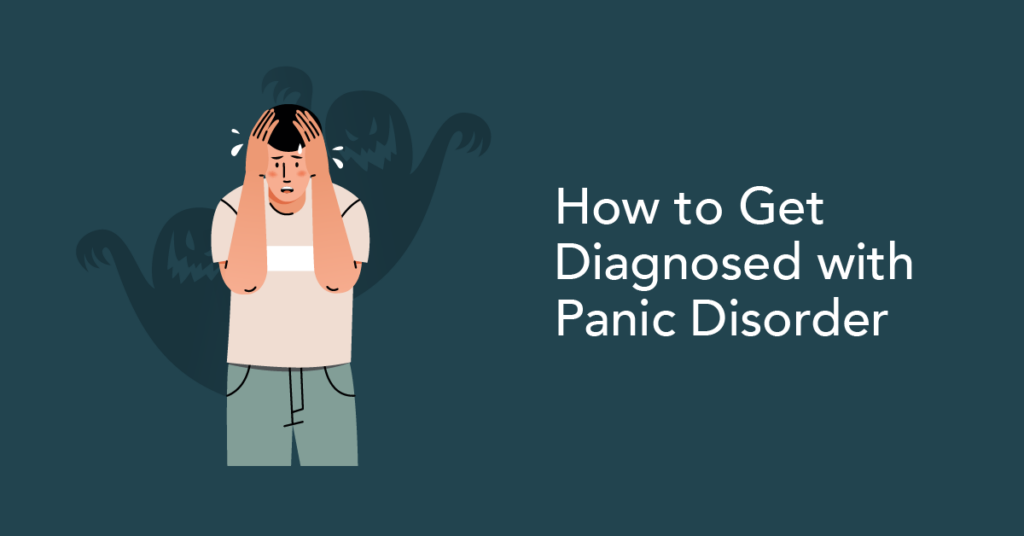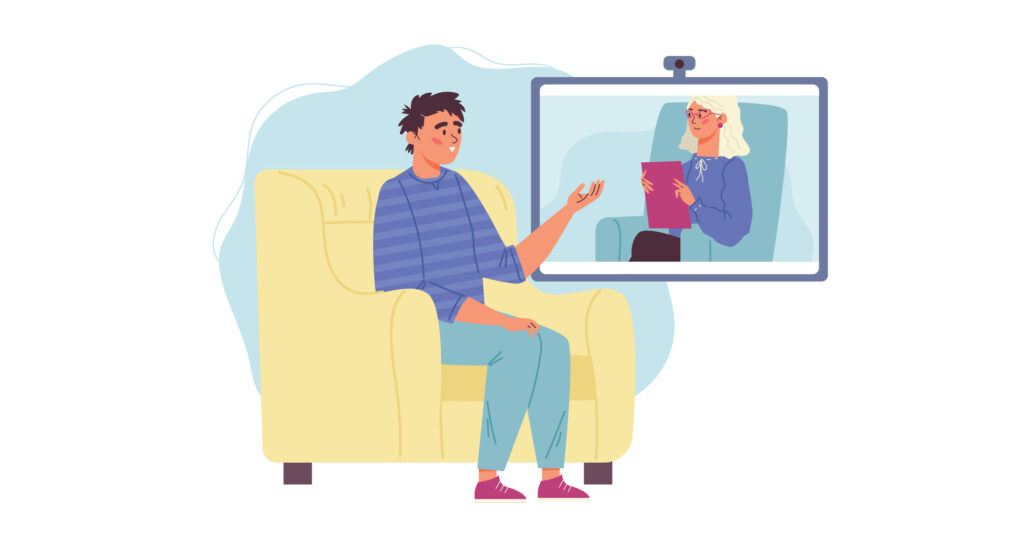Panic disorder is diagnosed through:
Review of symptoms like chest pain, fear, racing heart
Rule out physical health issues
Frequent panic attacks are key to diagnosis
Remember that time your heart pounded out of nowhere, your chest tightened and it felt like you couldn’t breathe? Maybe your hands shook, your vision blurred or you thought something terrible was about to happen. These sudden waves of fear are more than just nerves. They might be panic attacks, and if they happen often, a panic attack assessment can help determine whether you have a panic disorder.
Feeling anxious now and then is normal, especially in stressful situations. But panic disorder goes beyond everyday worry. It affects daily life and can be mistaken for other conditions. This article explains how panic disorder is identified, what steps to take and why clarity matters for your well-being.
What Is Panic Disorder?
Panic disorder happens when sudden, intense episodes of fear occur repeatedly. These episodes, known as panic attacks, can make a person feel like they’re losing control, even when there’s no real danger. For some, these attacks come out of nowhere. For others, the attacks are triggered by stress, certain situations or physical sensations. A panic attack feels scary. Your heart races, your breathing becomes difficult and you might think you’re dying. This can happen for 5 to 20 minutes at a time. Some can even go on for an hour. However, while they may feel overwhelming, panic attacks aren’t physically harmful. The problem occurs when you start avoiding places or activities because you fear another attack. Left untreated, a panic disorder can disrupt your daily life and increase the risk of developing conditions such as depression, agoraphobia or substance use disorders. This is why a mental health diagnosis is important. Doctors usually diagnose panic disorder when you’ve had several attacks and live with ongoing worry about having more.Symptoms of Panic Disorder
While many anxiety disorders can include panic attacks, panic disorder has specific patterns. You might have panic disorder if you’ve had four or more panic attacks and constantly worry about having another one. Symptoms often strike without warning, creating intense physical and emotional reactions. Symptoms of a panic disorder may include:- Nausea or stomach discomfort
- Trembling or shaking
- Shortness of breath or a choking sensation
- Feeling disconnected from reality or yourself
- Chest pain that can feel like a heart attack
- Sudden waves of anxiety
- Hot flashes or chills
- A strong sense of dread or fear of dying
Who Do You See About Your Panic Disorder?
Knowing where to go for a panic attack assessment can feel confusing, but the path is simpler than you might think. Most people start by visiting their primary care physician or general practitioner. This familiar doctor can be your first step toward finding help. Your doctor will ask about your symptoms and check for any physical issues that might cause symptoms similar to panic attacks. They’ll want to rule out heart problems, thyroid issues and other conditions that can cause similar feelings. After this first check, they’ll decide if you need to see a specialist for more help.Referrals to Mental Health Professionals
If your doctor thinks you have panic disorder, they’ll likely refer you to a mental health expert. This might be a psychiatrist, a psychologist or another licensed therapist.Directly Seeing a Mental Health Professional
You can also skip the GP visit and go straight to a mental health professional. Many accept self-referrals, meaning you can call and make an appointment without a doctor sending you. However, some insurance plans might require a referral first, so check your coverage before making appointments.Other Referral Paths
- Employee assistance programs. Some workplaces offer mental health support, which may help with referrals.
- Community mental health clinics. These offer affordable options for people without insurance or with limited funds. They can evaluate your symptoms and help find the right care.
Standard Evaluations for Panic Disorder
Because panic disorder shares symptoms with other conditions, diagnosing it requires careful evaluation. A doctor first rules out other possible causes before confirming the diagnosis. To better understand your symptoms, your doctor may recommend:- A thorough physical examination to check your overall health
- Bloodwork to look at your thyroid function and other possible medical causes
- Heart tests, such as an electrocardiogram, to make sure your heart is working properly
- A conversation about your specific symptoms, fears and stressors
- Questions about your family history of anxiety or panic
- Discussion about any alcohol or drug use that might affect your symptoms
Freedom From Panic Starts With One Conversation
Over 40 million Americans struggle with anxiety disorders each year. Panic disorder is one of them, affecting daily life in ways that can feel overwhelming. The good news is that help is available and early diagnosis can make a big difference. A panic attack assessment or anxiety disorder screening can open the door to effective treatment. If it’s determined that you have panic disorder, your doctor will discuss treatment options with you. This usually involves therapy, medication or both, based on your needs and preferences. With the right approach, many find relief and regain control of their lives.Get the Help You Need With a Panic Attack Assessment Today
Someone’s waiting to help you right now. Mental Health Hotline connects you with trusted mental health providers across the country who understand what you’re going through. Our partner specialists have helped thousands of people just like you regain control of their lives. Contact us today to talk to one of our caring professionals, available 24-7.Editorial Team
-
 Written By: Mental Health Hotline
Written By: Mental Health HotlineMental Health Hotline provides free, confidential support for individuals navigating mental health challenges and treatment options. Our content is created by a team of advocates and writers dedicated to offering clear, compassionate, and stigma-free information to help you take the next step toward healing.


